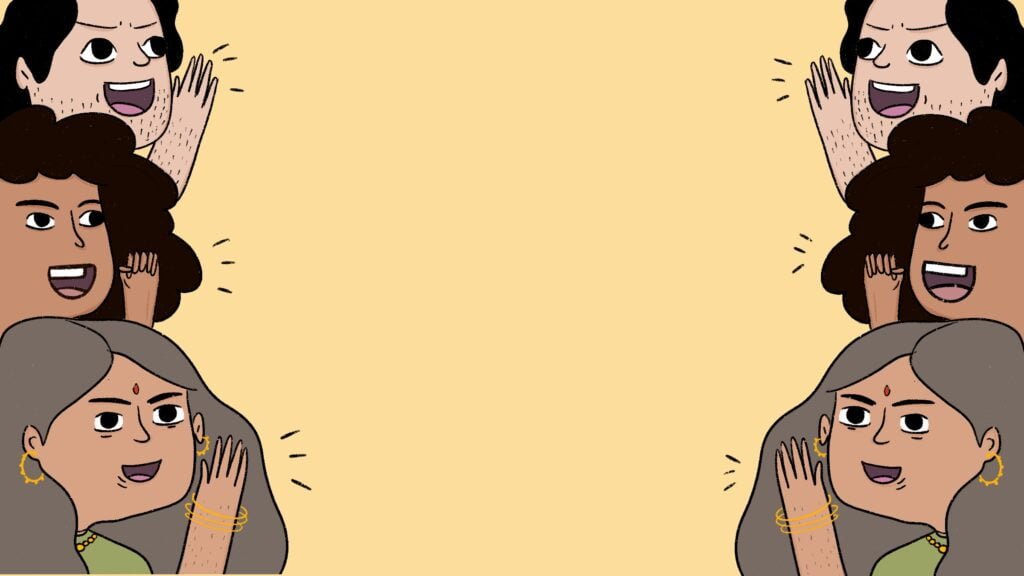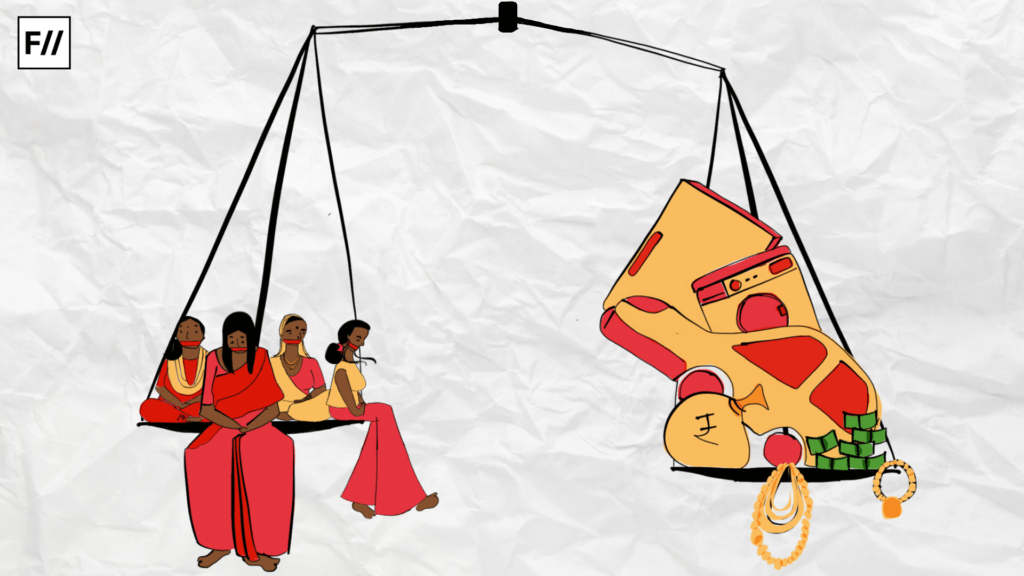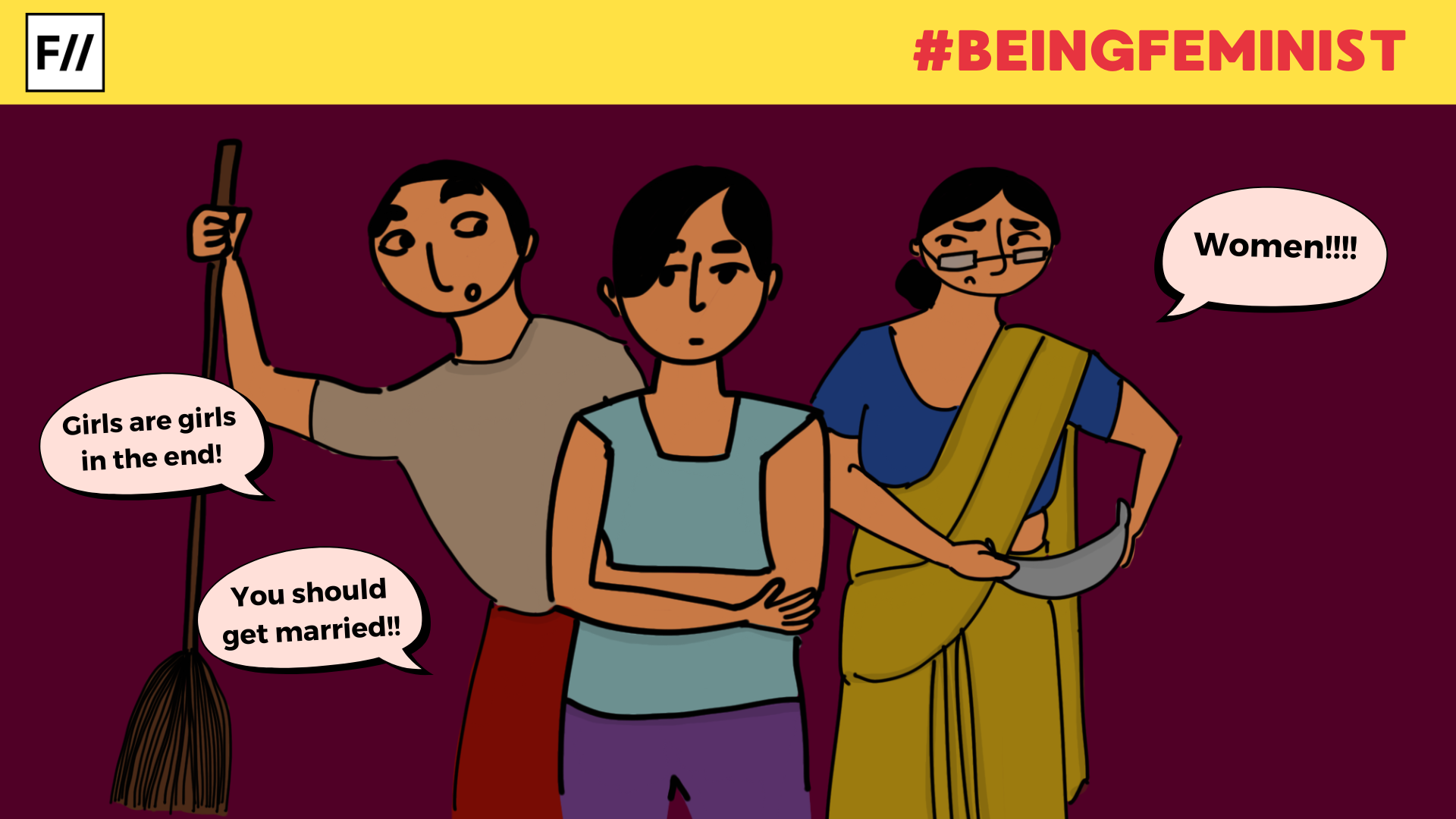Editorial Note: Being Feminist is a fortnightly column that features personal narratives documenting the emotions, vulnerabilities and innermost contradictions every feminist encounters while trying to push through various degrees of patriarchy in private, professional and public spaces.
The manifestations of being a feminist change as the spaces where it is being expressed change. If I look back now, there are several instances wherein I directly or indirectly participated in activities which I would disapprove of as a feminist in public space. Or even if I questioned it, I could not make much of a change in my thinking because the sexism in domestic spaces is so casual and normalised that often we realise that we are participating in it by the time we are halfway into it. That at times, makes me even question, “Is feminism stronger as a theoretical concept than a practical one?”
Talking about this, takes me back to the cosy room with chilly Diwali season air, firecrackers in the background reminding me of their existence time and again and ladies of the house bustling around in the small inner room to get ready for the evening Pooja. Coming from a culturally rich family that knows how to stay together in the face of increasingly westernising influence, all aunts and uncles, nephews and nieces had come together, some instructed, to celebrate the festival together.
I notice one of my aunts commenting on how “flat” (chested) one of my cousins was, and how that would be a major problem when she would be getting married. Another aunt who claims to know nothing about artificial artefacts of the new generation in the market suddenly becomes curious and tells how she should buy push-up bras.

Also Read: Cosmetic Issue: To Wear Or Not To Wear While Being A Feminist
I look at the correction I was making to the figure of one of the women that my young niece had drawn in her drawing book. I increase the curves of the figure to make her look feminine, the same aunt then sees the figure, appreciates my eye for catching mistakes in the drawing and proceeds on with the tips on how to not look flat. It is in times like these that my identity as a feminist is put into doubt, would a true feminist have done that correction to a drawing, or would a true feminist support the idea of wearing a push-up bra for the male gaze by staying silent? I was sure that I would not have done either of those things had I been in a professional or academic setting where rationality and reason prevail.
Why was it so? Maybe it was because the discussion did not seem out of place at all, maybe because that’s what we have grown up seeing, in closed spaces of households, women commenting on how they can look better to appeal to the male gaze or secure a suitable match, because no matter how educated you are, how successful your career is, you need a companion in life. It does not matter if the companion is someone for whom you have to change your preferences or even your body for.
That makes me look at my newlywed cousin who glees as she looks at her reflection in the mirror. But she does not look at herself, she looks at the green bindi on her forehead, it goes well with the green silk saree that she has draped, her husband’s favourite. Whenever I look at her, I see the beautiful dusky teenager laughing, drawing different designs on her forehead with differently coloured bindis. Now, she removes her green bindi before anyone sees it and replaces it with the usual maroon one. Her husband does not like coloured bindis, apparently, it makes her look childish. Once all of the cousins convinced her to put on a coloured bindi and her husband removed it in front of the whole family. The decision reached was that her bindi is not just an accessory, it is a symbol of her marriage and her Suhag.

What I understood is that her forehead even if hers, is her husband’s territory by the virtue of their marriage. And eventually, who does she dress up or get ready for? Her identity is not her name Kalyani anymore, it is her name and her husband’s surname. The feminist in me rose at this point to question if this means that Kalyani as an individual stops existing but I was met by the argument that what is wrong if she does something or adjusts a bit for someone who loves her. But, is she getting the same treatment in return?
At that point, my mind goes back to the time when I used to tease the about-to-be-married Kalyani to sit properly or laugh at her improperly draped saree or comment on her most non-circular chapatis with a constant remark, what will your in-laws say about this? Did all of us indirectly implant the thought of always caring about what her in-laws or husband says in her mind to the extent that the girl who works at par with her male colleagues in the office and questions any injustice at her workplace, puts on the maroon bindi without a retort in her domestic space?
In the same mirror, I see the reflection of my mother distributing sweets brought all the way from our hometown. I take one but my 27-year-old unmarried cousin refuses to eat it. She’s on a diet so that she can match the descriptions of what men look for on the matrimonial sites. She is an independent rich woman who I have always looked up to, her dream has always been to grow old with cats, books and a big house, “I want to be Aunt Jane from Little women“. But her life is not a novel, she is a single girl child of a well-to-do Indian family.
Even when her career counselling session was on, her father had made it very clear that his daughter will do a job that balances family time and work time, after all, it’s different for girls. And now, her parents are worried, what if a successful woman like their daughter is cheated upon by a stranger, especially from another caste or religion? Therefore, it’s best if they take it upon themselves to marry her off, already it’s late. And their daughter though reluctant, obliges. I think it’s not her, it’s the people around her that passed on to her back the burden of being a single girl child.

In a society where sons are probably most treasured next to family respect or izzat, her parents chose to raise her as a single girl child. This made sure that she had to live to make her parents proud of her at the same time compensate for not being a son. Her parents never made her feel that, but the way our society and families are structured was enough to make her sense that. This way, I think she has always led a life of double disadvantage. Every step of her life, she felt obligated to prove that she was worthy of what she got. Now, she has to prove that she can secure a good match and lead a happy conjugal life.
While one can look at her achievements in life as an assertion of her feminist agency, we also need to look at the motivation here, her exercise of the agency was indirectly shaped by her parents and relatives. So, was it just her? In this light, the overthinker in me wishes to ask if her achievements and agency exercise in a professional setting or public space is a way of compensating for what she could never feel in the patriarchally rooted domestic setting.
Finally, everyone is ready for the Pooja and out of the inner room, one of my uncles comments, “If we go by ladies’ speed, all rituals will be delayed, how come you all take so long to get ready every time?” Everyone laughs and one of my young nephews says, “Women” with a gesture of sipping tea. The feminist in me wishes to retaliate but it is just a joke, isn’t it? But it normalises and stereotypes this way of thinking for the uninformed.

But again, it is what crowds the comment section of blatantly sexist reels and posts, right? But those are just memes, right? All these women in the room including me are in some way or other not following the tenets of feminism that we abided to live by, our thoughts on feminism are pretty “ahead of time” and suit our academic and professional space, but this is just a domestic room, right?
About the author(s)
Arya is an undergraduate student pursuing an Integrated Master's in Development Studies from the Indian Institute of Technology, Chennai. She completed her schooling in the humanities stream from Nagpur. Still hooked to teenage novels, she likes singing, dancing and loves talking. Intersectionality became her favourite word since the time she was introduced to it. Her major interests include adopting the intersectional feminist approach in studying other disciplines like Economics, Management, Development and interpretation of literature, films Etc.





